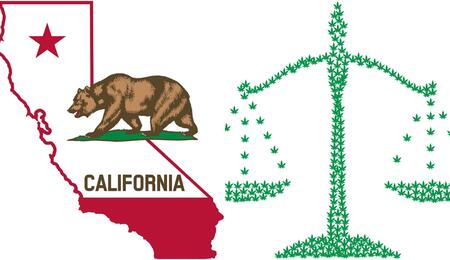Expungement Bill California: Getting Your Cannabis Record Clear

Cleaning your record is now just a few clicks away.
While eleven states and Washington, D.C. have legalized recreational pot, the process of expunging cannabis crimes remains expensive and complicated, with methods to clear records varying between jurisdictions. The article focuses on the expungement bill California, and how cannabis users in this state who've experienced criminal offenses related to cannabis can make the best of this bill to clear their legal record.
Righting social justice crimes from the war on drugs has become something of a prerequisite for legalization in 2020. Some states, like New Jersey, have passed an expungement bill, relatively easy, although the jurisdiction has failed to legalize recreational marijuana through the state legislature. Illinois, for instance, which legalized weed in January 2020, introduced the most comprehensive and progressive expungement procedures to date, with Democratic Governor J.B. Pritzker pardoning more than 11,000 people, convicted of a low-level charge for weed possession.
This is not always the case. Many early states that legalized cannabis, have had to work backward, retroactively drafting legislation to clear people’s record of marijuana convictions, and help them live free from the stigma of a draconian drug arrest. California is one of them.
Expungement Bill California
When California officially legalized recreational cannabis at the start of 2018, a provision in the law offered a clean slate for individuals convicted with marijuana-related crimes. However, residents of California who had been hoping to have their records expunged for marijuana crimes had to be patient, as the process remained complicated and expensive. Tucked into Proposition 64, the section that reclassified past marijuana-related crimes did not offer any details on how that would happen.
Individuals with marijuana convictions could opt for a petition the court-an arduous experience, which costs a small fortune. As of January 1, 2019, a follow-up law has gone into effect, after then-Governor Jerry Brown had signed the Bonta Bill to streamline and clarify the expungement process. The new law AB-1793, basically made expungement automatic for people who had been found guilty of cannabis possession in the past.
“A marijuana conviction, even for something as minor as a possession for personal use, comes with lifelong collateral consequences that restrict access to employment, housing, education, and public benefits, and may result in children being separated from their parents and non-citizens being deported,” Jolene Forman, a senior staff attorney with Drug Policy Alliance, told LA Magazine.
Assemblymember Rob Bonta proposed the bill, to help address the fact that the majority of the people who were able to have clean their records were not using the option. “The majority of eligible individuals have not gone through the process of petitioning the courts,” Bonta told Los Angeles Magazine. “Many people are unaware of this opportunity to change their records, but even for those who know their rights, navigating the legal system’s bureaucracies can be confusing, costly, and time-consuming.”
By July 2, 2020, California’s Department of Justice must review case files in each of California’s 58 counties dating back to 1975, to identify all the eligible individuals who are to have their records cleared. The records might automatically become available for modification if the prosecutor’s office doesn’t have a specific challenge. Approximately 220,000 people across the state will be impacted by this. Some cities like San Francisco, have already gone about expunging past convictions for both felonies and misdemeanors.
Who qualifies for expungement in California?
The specifics of who qualifies for automatic expungement, remain somewhat confusing. Basically, adults of 18 years old or older, in possession of more than 8 grams of concentrated cannabis or 28.5 grams of marijuana, it constitutes a crime, leading to a $500 fine and six months in jail. For individuals under 18, it’s considered as an infraction, which might involve community service and drug counseling.
Therefore, anything less than the aforementioned amounts of cannabis possessions theoretically qualifies for automatic expungement if you were previously charged for possession. Any other cannabis-related crimes (possession of greater amounts, transportation) will have to petition the court to get the charge reduced or the record potentially cleared, in accordance with the expungement bill California. The process can be daunting and difficult to navigate, so it’s advisable to seek legal assistance, if possible.
In short, you will need a copy of your record from the DA’s office or courthouse where it's held, so you can file the petition. There is a chance that DA will look over the petition, however, in most cases, a judge usually makes the final call.
Automatic expungement: an online tool for help
If you qualify for automatic expungement, you'll have a much easier go to clear your legal record on cannabis. What is probably better, a nonprofit organization based in San Francisco called Code for America has provided technology to assist the DAs in going through the hundreds of thousands of files. Their online tool has shown to significantly aid California’s expungement bill.
The pilot program called Clear My Record (codeforamerica.org/programs/clear-my-record) helps by "reading and interpreting criminal history data from the California Department of Justice, and it can analyze eligibility of thousands of convictions in just a few minutes," according to Scott Gerber, a spokesperson for Code for America.
Clear My Record, available in several California counties is already showing impressive results, and to date, it has helped each of these pilot counties analyze their Prop 64 convictions, helping to dismiss or reduce approximately 75,000 convictions.
Launched in April 2016, Clear My Record was initially created as an online tool by Code for America to help individuals seeking to petition to have their records cleared.



